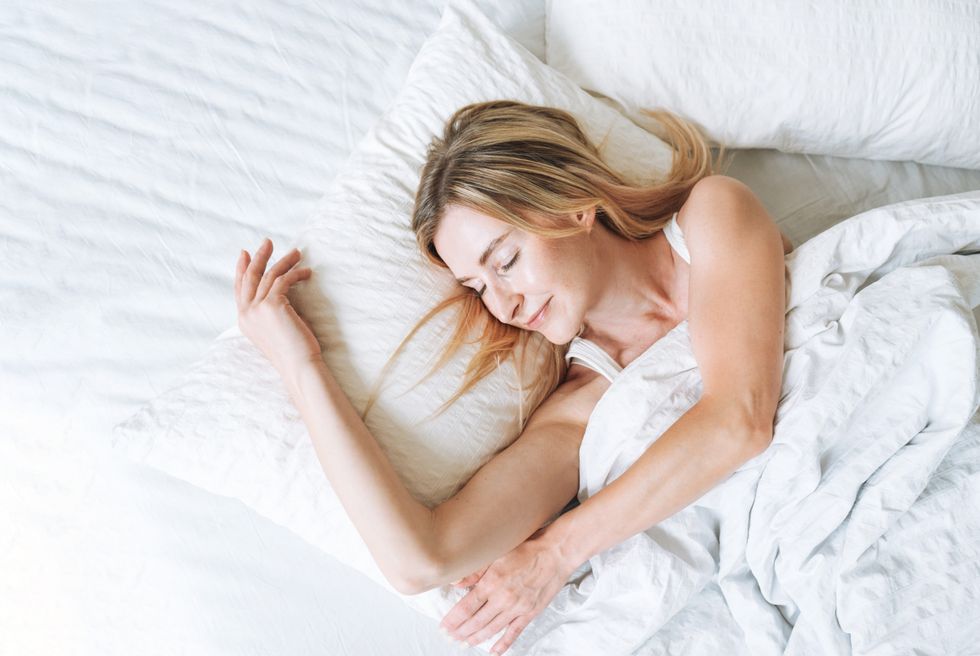Struggling to sleep linked to increased Alzheimer's risk - 5 tips can help you fall asleep more easily
GB News viewers receive sleep advice
Many Britons spend their nights tossing and turning, but new research warned this could lead to potentially devastating health problems. Sleep expert from MattressNextDay Martin Seeley shared tips for falling asleep more easily
Don't Miss
Most Read
Trending on GB News
Problems falling asleep impact our general health and wellbeing, and can even have serious long-term implications.
According to a new study, disrupted rest might increase the likelihood of developing Alzheimer’s disease.
The finding emerged in a report published in January in the journal Alzheimer’s & Dementia, which analysed the relationship between REM sleep and Alzheimer’s disease.
Researchers looked at how long it took 123 people to reach rapid eye movement (REM) sleep for the first time after falling asleep.

A new study discussed the link between dementia and sleep
GETTY
They discovered that people who took longer to get to the REM stage of sleep were more likely to have biomarkers of Alzheimer’s disease.
The study has suggested poor sleep could raise your risk of developing the disease which affects memory and cognitive function.
Commenting on the report, CEO of MattressNextDay and one of the UK's leading sleep experts Martin Seeley said: “This report underlines the importance of sleep. Insufficient sleep can have a detrimental effect on your physical and mental health, including an increased risk of heart disease and diabetes as well as a weakened immune system.
“We are still at the early stages of looking at links between sleep and dementia, but poor sleep quality has been linked to Alzheimer’s.
“One of the biggest issues people face is struggling to fall asleep which limits the overall amount we get. For others, it is waking up in the night and being unable to get back to sleep.”
Some 71 per cent of adults have revealed they don’t get the recommended seven to nine hours of sleep per night, and almost half of those aged 35 to 44 say they get fewer than six hours.
Martin added: “Not enough sleep also negatively affects our mental health since that is when we sleep that our brains repair and reset.“
Inadequate sleep can lead to lower mood and difficulties concentrating as well as making us more susceptible to anxiety and depression.
Here, Martin shares his top five tips on how to fall asleep more easily.
LATEST DEVELOPMENTS

Eating too late at night can disrupt
GETTYEstablish a consistent sleep schedule
Aim to go to bed and wake up at the same time each day, even on weekends. This maintains the timing of the body’s internal clock and can help you fall asleep more easily.
Create a good sleep environment
Preparing your bedroom and yourself before settling down is essential. Ensure your bedroom is quiet, dark and cool. You should also try making your bed in the morning, so that when it’s time to get into it, it is an inviting place rather than a mess.
Develop a relaxing bedtime routine
It’s important that you can wind down before bed, otherwise you will probably find yourself unable to sleep, which can lead to anxiety in itself.
Take a bath, read a book, listen to calming music or practice breathing exercises to help you relax.
Limit screen time before bed
Avoid watching TV or using electronic devices for at least an hour before bedtime. The blue light emitted from screens tricks your brain into thinking it’s daytime, even when it’s not.
This means it suppresses the production of melatonin (the sleep hormone), making it harder to fall asleep.
Avoid large meals before bed
It goes without saying that you should avoid caffeine before bed but you should also avoid large meals as well. Not only can it lead to weight gain but the digestive process can interfere with your sleep cycle.
For more information visit https://www.mattressnextday.co.uk/.








